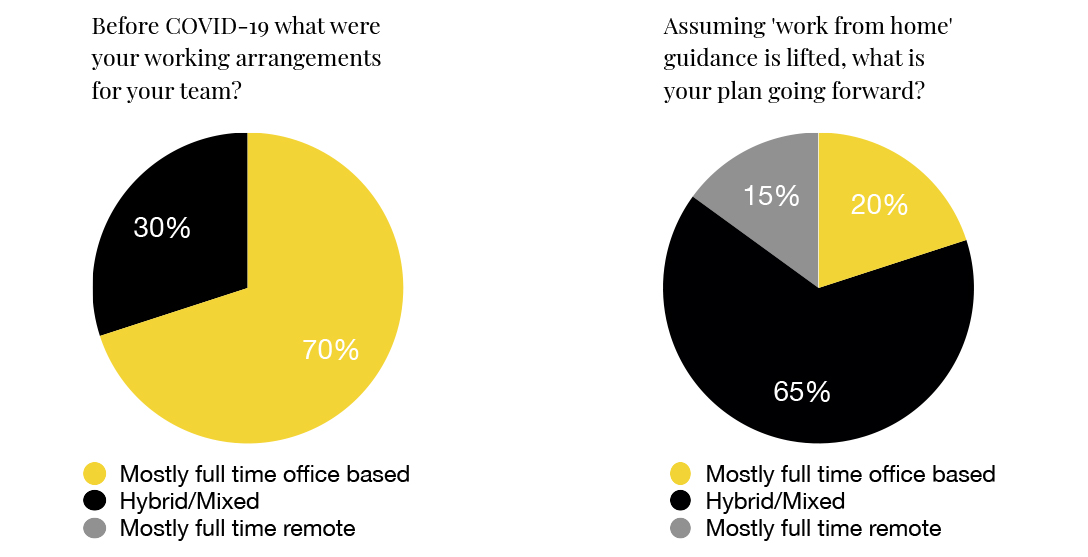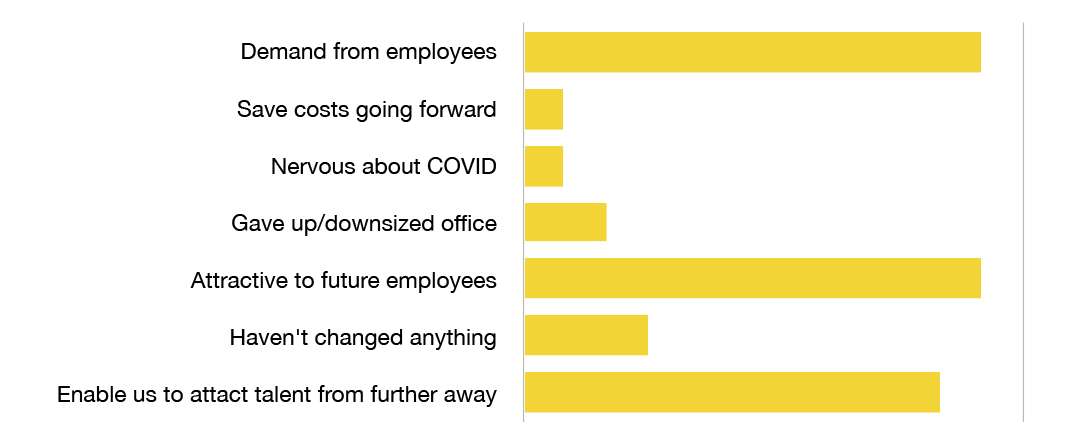How to insulate your business from supply chain shock
20 October 2021
Pandemic-related problems are putting extra stress on UK companies already dealing with post-Brexit trading difficulties.
3 min read

All Together's survey was sent out between September and November 2021 and was filled in by the CEOs, founders and business owners of teams of all sizes.
There has been a clear and widespread transition away from the expectation that employees are almost entirely office. Now, a vast majority (80%) of businesses offer some form of flexibility to their employees.

Overwhelmingly, it appears this change in mentality is people motivated, with bosses offering greater flexibility to employees as a means of attracting and retaining them, rather than being motivated by cost reduction or fear of Covid.

Notably, our research also highlighted that ‘demand from employees,’ both current and future, seemed to be a more significant driver for larger companies than those with fewer than 25 employees.
It’s hard to determine why this might be exactly, but it’s possible that todays highly competitive labour market might be playing a part, along with unions and safety concerns among larger groups being more significant.
Interestingly, 95% of respondents indicated that they would still ‘allow employees to work in the office full time if they wanted to’. Highlighting further that the move to more remote working has been driven by demand from employees rather than the wishes of employers, and wasn’t simply a cost saving exercise.

Unfortunately, respondents indicated a wide variety in approaches to flexible working for 2022, with no clear patterns discernible across all sectors and business sizes. One commonality, however, was the degree of flexibility workers will be afforded with.
Responses suggest a majority of employees will be spending 2 or 3 days a week working remotely, and that smaller companies will afford workers the greatest degree of flexibility in this area.
It is clear that CEOs are rethinking their offices, with many making significant changes based around group work and collaboration, with the expectation that ‘focused work’ will be done at home:
This research was conducted by and for All Together Collective Ltd. It is for destruction solely and exclusively by All Together and their permissive partners.
Join the Founders & Family Business Network and receive our Monthly Newsletter
Browse articles in